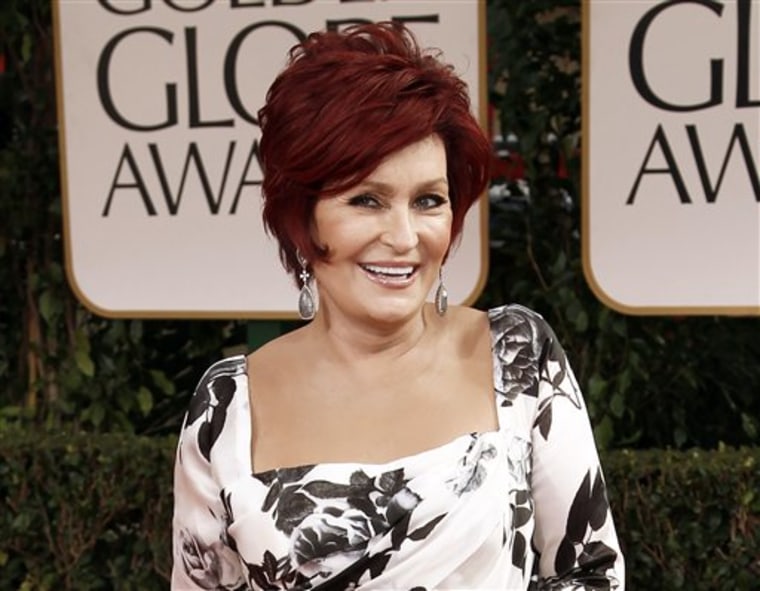Sharon Osbourne has revealed in a new interview that she recently underwent a preventive double mastectomy after discovering she carried a gene mutation that made her susceptible to breast cancer.
"I've had cancer before and I didn't want to live under that cloud," the 60-year-old star of "America's Got Talent" told Hello! Magazine in an interview that was excerpted by the Daily Mail over the weekend. "I decided to just take everything off, and had a double mastectomy."
While no statistics are available as to how common preventive (also called prophylactic) mastectomies are, Dr. Deanna Attai, a breast cancer surgeon practicing at the Center for Breast Care in Burbank, Calif., says she does believe doctors are performing more of them these days.
"It does seem like we're doing more of these surgeries," she says. "There's an increased awareness about BRCA mutations and breast cancer in general. I think the combination of that plus reconstructive techniques improving gives women a little bit better of an option if they test positive."
Related: Sharon Osbourne reveals she had a double mastectomy
BRCA1 and BRCA 2 are the two recognized gene mutations that can develop into breast cancer.
Are prophylactic mastectomies effective in warding off breast cancer? According to Attai, the answer is a resounding yes.
"With a prophylactic mastectomy, the risk of breast cancer is reduced to about 1 to 3 percent," she says. "So when you look at someone who has maybe a 60 to 80 percent risk of developing breast cancer based on their gene mutation and you can drop that risk down to 1 to 3 percent, that's pretty significant."
Attai warns that no amount of breast surgery can completely remove the risk of cancer, however.
"It's just physically impossible to remove every cell," she says. "We saw this back in the day with radical mastectomies. People still developed recurrence even with very aggressive dissection."
She also stresses that a prophylactic mastectomy is a major step.
"Despite all of our improvements in plastic and reconstructive surgery, this is a still a big deal," she says. "It's not the same as getting a set of implants. There are possibilities of complications with reconstruction. It's a decision women need to think about carefully. It's a significant risk reduction but it's a big decision."
The BRCA gene mutation isn’t the only risk factor for breast cancer, of course. Attai and others in the breast cancer field believe there may be more genetic markers that just haven’t been discovered yet.
"We've all had the situation where you have somebody with a strong family history of early breast cancer and maybe even ovarian cancer and they test negative for BRCA mutation," she says. "It's got to be something else going on. It may be unique to that family. But I'm sure there are other mutations and as research progresses in this area, we're going to find a large number of cancer attributed to these identifiable gene mutations."
Attai says many of her BRCA patients have the procedure because they don't want to live under a cancer cloud. Osbourne, who was diagnosed with colon cancer 10 years ago, has expressed the same sentiment.
"There's such an overwhelming sensation of waiting for the other shoe to drop," says Attai.
And the risk of breast cancer does increase for women who've been diagnosed with colon cancer.
"Women who have had breast or colon or ovarian cancer, even in the absence of a BRCA mutation, are at increased risk for all of those other cancers," she says. "Colon, breast and ovarian are the three primary ones that are linked."
More from TODAY Health:
Life in limbo: Waiting to get booted from the cancer club
Five years after cancer, an emotional Hoda thanks her doctors
Stronger: Kids turn cancer fight into viral video
